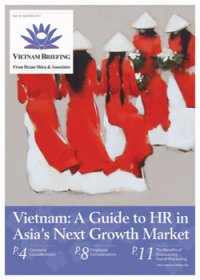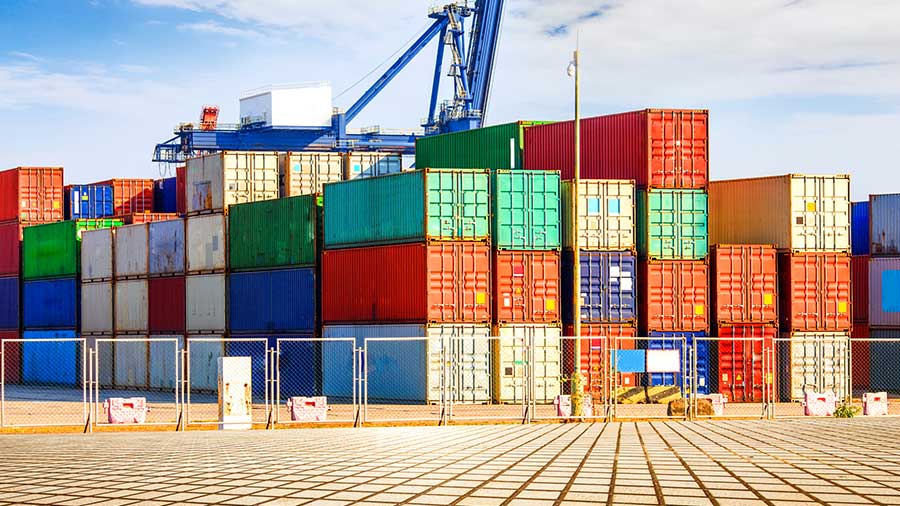Vietnam-U.S. Relationship Shows Continued Signs of Improvement, TPP Progressing
HCMC – Recent high-level government meetings have confirmed that Vietnam and the United States are continuing to strengthen their bilateral relations. Among the important agreements are trade deals such as the Trans-Pacific Partnership (TPP) and the removal of a US arms embargo. In 2015, the two countries will celebrate their 20th anniversary of normalized bilateral relations.
Two recent important meetings between the two nations have included Pham Binh Minh’s, Vietnam’s Deputy Prime Minister, recent trip to the US and a trip to Vietnam by US Trade Representative, Michael Froman.
 RELATED: Dezan Shira & Associates’ Business Advisory Services
RELATED: Dezan Shira & Associates’ Business Advisory Services
Since 2013, Vietnam and the US have been working together to strengthen bilateral relations in a number of areas, including:
- Economics
- Trade
- Science-technology
- Education
TPP negotiations progressing
During US Trade Representative Michael Froman’s meeting with Vietnam’s State President, Truong Tan Sang, both leaders affirmed that negotiations on the Trans-Pacific Partnership (TPP) are seeing positive forward movement. Mr Froman assured Vietnamese government officials that the US remains committed to supporting the country “on its path to becoming a prosperous economy deeply integrated into the global market.”
Upon completion, the TPP trade area would comprise a region with US$28 trillion in economic output, making up around 39 percent of the world’s total output. If the TPP is successfully implemented, tariffs will be removed on almost US$2 trillion in goods and services exchanged between the signatory countries. Thus, Vietnam has much to gain from the implementation of the trade agreement, including drastically reduced tariffs in some of the world’s largest markets.
However, negotiations for the TPP have encountered a number of roadblocks recently. Among the reasons for delay, Vietnam has expressed the desire to be exempted from some of the trade conditions, due to the fact that the country is not as well developed as others in the region. Deputy PM Minh explained that “An obstacle for Vietnam is that our country’s development level is lower than other TPP members. Vietnam wants the US and other countries to create a transitional period for it.” Vietnam has been granted this type of grace period in the past, specifically with regards to its WTO commitments.
An additional area of concern for Vietnam has been in gaining assurances that its products will be ensured access to the markets of other TPP signatories. In particular, the country wants to ensure access for products such as textiles, garments, and agricultural products.
The Vietnamese government has issued a number of assurances that it is making strenuous efforts to ensure that it does not hold up the progress of the landmark trade treaty. Along these lines, the country has pledged to adopt a variety of international criteria and standards, such as those set out by the International Labor Organization. State President Sang has also stated that Vietnam is working hard to reduce the development gap between Vietnam and other countries in the region. During his visit, Mr Froman encouraged the Vietnamese government to comply with international agreements on the environment, intellectual property, and labor.
Vietnam has previously called upon U.S. government officials to ensure a speedy and successful end to TPP negotiations. A short time ago, US Senator Patrick Leahy visited Vietnam and met with government officials including Nguyen Sinh Hung, Vietnam’s National Assembly Chairman, and State President Sang. During the Senator’s meeting he frequently heard the government officials again express their hope that the U.S. would be able to quickly complete the TPP negotiations.
RELATED: TPP to Drive Competition in Vietnam’s Beer Market
US arms embargo
In yet another sign of strengthening US-Vietnam relations, after returning from his trip to the United States, Vietnam Deputy Prime Minister, Pham Binh Minh, stated that the partial removal of the US arms embargo was a major step towards creating a “normal” relationship between the two nations. State President Sang has also called the US decision to begin lifting the ban on arms sales to Vietnam a positive move.
However, the removal of the arms embargo could have a number of knock-on effects in the region, which has seen increased tensions over border disputes centered on the East Sea (South China Sea). The US move could be seen as yet another attempt by the country to balance an increasingly expansionary China. However, the US has pressed Vietnam to pursue peaceful methods of conflict resolution over the East Sea (South China Sea) issue with China. In turn, Vietnam has pledged to find lawful methods of resolving the situation, such as ensuring the proper implementation of the Declaration on Conduct of Parties on the East Sea.
Asia Briefing Ltd. is a subsidiary of Dezan Shira & Associates. Dezan Shira is a specialist foreign direct investment practice, providing corporate establishment, business advisory, tax advisory and compliance, accounting, payroll, due diligence and financial review services to multinationals investing in China, Hong Kong, India, Vietnam, Singapore and the rest of ASEAN. For further information, please email vietnam@dezshira.com or visit www.dezshira.com.
Stay up to date with the latest business and investment trends in Asia by subscribing to our complimentary update service featuring news, commentary and regulatory insight.
Related Reading
 Vietnam: A Guide to HR in Asia’s Next Growth Market
Vietnam: A Guide to HR in Asia’s Next Growth Market
In this issue of Vietnam Briefing, we attempt to clarify human resources (HR) and payroll processes in Vietnam. We first take you through the current trends affecting the HR landscape and then we delve into the process of hiring and paying your employees. We next look at what specific obligations an employer has to their employees. Additionally, we guide you through the often complex system of visas, work permits, and temporary residence cards. Finally, we highlight the benefits of outsourcing your payroll to a “pan-Asia” vendor.
 Tax, Accounting, and Audit in Vietnam 2014-2015
Tax, Accounting, and Audit in Vietnam 2014-2015
The first edition of Tax, Accounting, and Audit in Vietnam, published in 2014, offers a comprehensive overview of the major taxes foreign investors are likely to encounter when establishing or operating a business in Vietnam, as well as other tax-relevant obligations. This concise, detailed, yet pragmatic guide is ideal for CFOs, compliance officers and heads of accounting who need to be able to navigate the complex tax and accounting landscape in Vietnam in order to effectively manage and strategically plan their Vietnam operations.
 An Introduction to Doing Business in Vietnam 2014 (Second Edition)
An Introduction to Doing Business in Vietnam 2014 (Second Edition)
An Introduction to Doing Business in Vietnam 2014 (Second Edition) provides readers with an overview of the fundamentals of investing and conducting business in Vietnam. Compiled by Dezan Shira & Associates, a specialist foreign direct investment practice, this guide explains the basics of company establishment, annual compliance, taxation, human resources, payroll, and social insurance in the country.
- Previous Article IMF Report Shows Economic Improvement in Vietnam, Recommends Not Lowering CIT
- Next Article Understanding How to Hire and Pay Staff in Vietnam
































